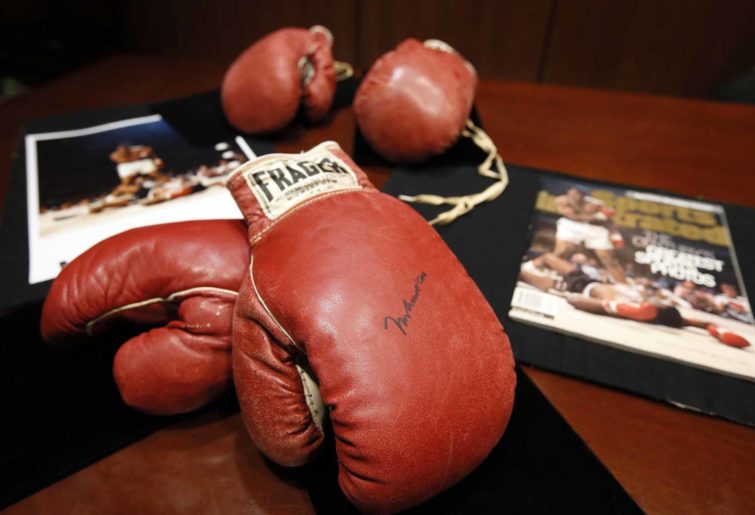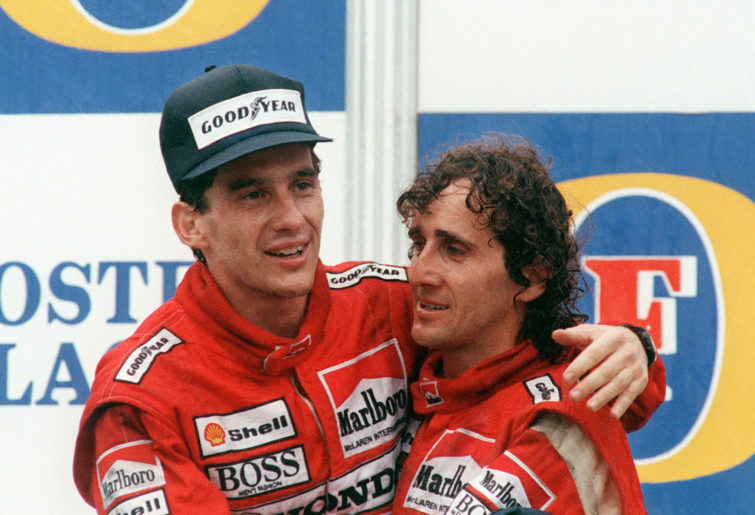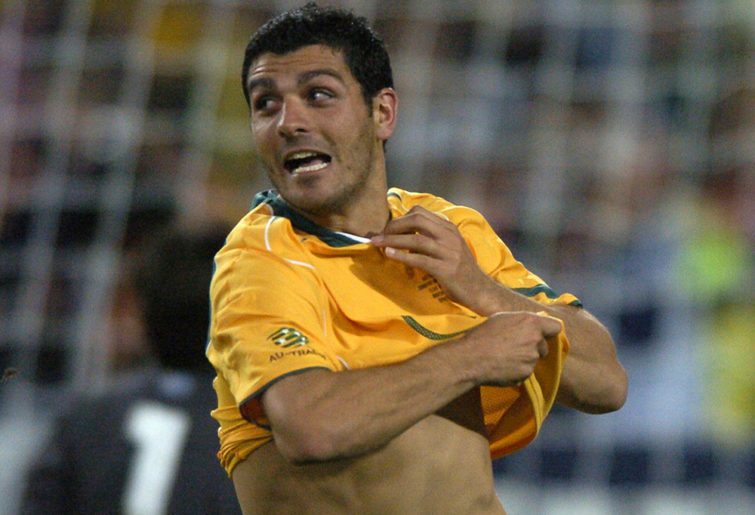In 2016 I wrote a piece for The Roar entitled My ten greatest sporting reads.
Thankfully, readers engaged enthusiastically with it and considering the circumstances in which we currently find ourselves, I thought an exploration of the greatest sports documentaries I have viewed might also be worth the energy.
It will be interesting to read the recommendations of other Roar contributors and readers on the subject. I’m sure what I have touched on is just the tip of the iceberg when considering the thousands of brilliant sports films that have been made over the last half century.
Here are my selections and if you have not seen any of them, do yourself a favour.
10. The Killer Years, BBC (2011)
This production is a chilling recount of a dark period for Formula One racing when, as Sir Jackie Stewart alludes to in the program, one out of three drivers were being killed. The horrific footage of burning cars sitting among flammable hay bales as other drivers stand helplessly nearby is graphic. As are interviews with some of the greatest ever drivers that offer rich insight into now deceased colleagues such as the great Jim Clark.
The roles of car designers and team bosses such as Colin Chapman come under great scrutiny and the search for speed seemed to override all notions of safety. The Killer Years is a moving and gut-wrenching view, yet one well worth the effort in understanding a dark period for motorsport.
9. Year of the Dogs, Michael Cordell and Stewart Young (1997)
The Western Bulldogs have been the archetypal battlers of the VFL/AFL for over half a century. At their lowest point and threatened with extinction, the club hired Terry Wallace to invigorate an under-performing list and turn around what loomed as a disastrous 1996 season.
With a run of poor losses, pressure for clubs to merge in order to guarantee survival and with the then Footscray Football Club on its financial knees, the documentary is a gripping recount of an awful period.
Wallace’s numerous dressing-room speeches to the players are spine-tingling. Watching the way he attempts to tweak the message to establish the right mental framework for a beaten and forlorn side is compelling. There is no fairy tale ending, merely a brilliant documentary that shows a ruthless coach under immense pressure and one attempting to deliver improved results for a struggling football club.
8. When We Were Kings, Leon Gast (1996)
As an Academy Award-winning documentary, many would argue that When We Were Kings should be atop this list. It is a visually stunning and evocative piece that captures the emotional story behind Muhammad Ali and George Foreman’s Rumble in the Jungle and the sideshow that went along with it. With Ali as the hero and Foreman the mysterious champion, promoter Don King created an event that will long live as one of the greatest sporting moments of the 20th century.
Allowing Foreman to wail away at his body for near on eight rounds before stunning the then tired champion late in the fight was the most perfect execution of the rope-a-dope strategy by Ali. He won, won the hearts of host country Zaire and added another stunning moment to his legacy.

(AP Photo/Tony Gutierrez)
7. One Day in September, Kevin Macdonald (1999)
Another Academy Award-winning film, One Day in September recounts the terrorist attack on the athletes village at the 1972 Munich Olympic Games. Eleven Israeli athletes were taken hostage and eventually killed by eight members of the Palestinian terrorist group Black September, protesting the detention of Palestinians in Israel.
The film is simply harrowing, chilling and still relevant. Archival footage of the stand-off is effective and the tense moments are presented magnificently by Macdonald. Theories around prior knowledge held by the German authorities still linger, as do questions in regards to the three surviving terrorists who were repatriated in a prisoner exchange some months later.
The event shaped the modern face of terrorism and sport has been in no way immune to its influence ever since.
6. Senna, Asif Kapadia (2010)
The mind of a motor-racing driver could well be the most complex of all athletes. The sheer danger and intensity creates something of a reckless professionalism that sees a driver face mortality in the mirror on a daily basis.
Senna explores such a mind, specifically three-time World Drivers’ Championship winner Ayrton Senna. His death in 1994 at the San Marino Grand Prix was one of the most tragic in world sport, yet this film delves more deeply into the personality traits, thinking and obsessive desire to succeed that fuelled the Brazilian when he was at the peak of his powers.
It is a stunning tribute, both joyful and sorrowful, to one of the greatest drivers of the modern era.

Ayrton Senna and Alain Prost. (PASCAL PAVANI/AFP/Getty Images)
5. Unmatched, Lisa Lax, Nancy Stern and Hannah Storm (2010)
There could hardly be more different perceptions of two tennis players than Martina Navratilova and Chris Evert. One a machine-like professional from behind the iron curtain, the other an all-American girl blessed with the looks and grace that would elevate her to the peak of popularity in her sport.
Despite the media lusting over some sort of fabricated rivalry and the two women frustrated by constant attempts to set it up, their respect for each other grew more and more as the years went by. This film features touching and intimate moments between the two as they look back at the countless matches they played, the moments they shared and discuss a contemporary friendship that is as genuine as can be.
4. Phi Slama Jama, Chip Rives (2016)
Never before had a college basketball team captured the attention of a state, let alone a nation, in the way the Houston Cougars did in the early 1980s. Using a style of basketball foreign to the collegiate system and more akin to streetball, the Cougars played above the rim and slam dunking became their primary weapon.
When a Houston sports writer coined the phrase “Phi Slama Jama” to describe their play, Texas climbed aboard the term and future NBA greats Hakeem Olajuwon and Clyde Drexler became household names. An intriguing sub-plot around star player Bennie Anders unravels amid the re-telling of Houston’s successes.
The film culminates in a touching tribute to a man once tipped to be one of the greatest players of all time, who threw it all away.
3. November 16th, Richard Bayliss and Ben Coonan (2015)
Football in Australia changed forever when John Aloisi converted a penalty on the 16th of November 2005. It advanced the Socceroos to the 2006 World Cup in Germany, the first time they had managed to make the final stage since 1974.
The film explores the backdrop to the game and the heartache and disappointments of the past that underpinned a promising campaign under manager Guus Hiddink. The Dutchman cleared the lens through which the Socceroos viewed their task.
In turn, they galvanised and took a refuse-to-lose attitude into the greatest night in the history of Australian football. The retelling of Tony Popovic’s pre-game aggression in the tunnel is brilliant and summarises the state of mind that Australia’s greatest ever football team took into the contest.

(AAP Image/Dean Lewins)
2. June 17, 1994, Brett Morgen (2010)
Morgen’s film captures what may well be the most astonishing day in the history of sport. As New York Rangers fans celebrated a drought-breaking NHL Stanley Cup win, the New York Knicks made a bid for glory in the NBA Finals. Arnold Palmer played his final round of golf in the US Open and the football World Cup began on American soil for the first time.
All the while, accused murderer OJ Simpson took the world on a madcap chase across the freeways of Los Angeles, determined to avoid arrest after indictments were made against him. It is a stunning documentary, based purely on archival footage from the day that sent the American sports media into a spin, as it attempted to cover all the drama and tension.
1. Hillsborough, Daniel Gordon (2014)
The events of the 15th of April 1989 continue to haunt the game of football.
The celebration of an FA Cup semi-final between Liverpool and Nottingham Forest turned to disaster when 96 fans lost their lives after authorities allowed an excessive number into the pens at the Leppings Lane end of the Hillsborough Stadium in Sheffield.
The footage taken that day is some of the most disturbing ever shown, with young fans crushed to death by the sheer weight of those lurching forward and hoping to witness the match. Inquiry after inquiry took place in subsequent years with blame still falsely attributed to Liverpool fans, surmising that the deaths were accidental.
Eventually, justice loomed closer as criminal charges were eventually laid on the basis of gross negligence, yet still fans of Liverpool fight on in the hope of justice for the 96.































































































